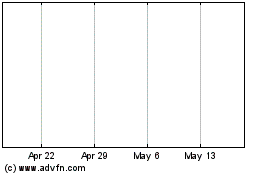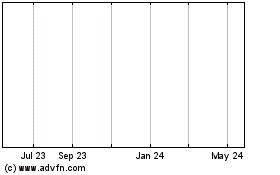2nd UPDATE: Biomet 2Q Sales Indicate Industry Under Pressure
January 06 2011 - 6:19PM
Dow Jones News
Biomet Inc. on Thursday reported sluggish fiscal second-quarter
sales that indicated a struggling orthopedics market hurt by the
economic downturn isn't yet in recovery mode, and may have slowed
further in recent months.
Shares of some publicly traded rivals were lower in the wake of
Biomet's report, with Zimmer Holdings Inc. (ZMH) closing down 3.1%
at $52.60 and Wright Medical Group Inc. (WMGI) down 3.1% to $15.70.
Biomet is smaller that the industry heavyweights and its fiscal
quarters end a month earlier than usual, but its results are
closely watched for early clues about the market's condition.
In this case, Biomet reported flat hip sales and a 3% increase
in knee sales for the quarter ended Nov. 30, excluding the impact
of currency rates, down from growth rates seen in the prior
three-month period. U.S. hip-and-knee sales slowed to 2% growth
from 5% growth in the quarter ending Aug. 31.
The market may rebound at some point, as the companies expect.
"But we're going to have to wait a little bit longer," Jefferies
& Co. analyst Raj Denhoy said.
J.P. Morgan analyst Michael Weinstein said the results reinforce
his firms' recent survey work indicating that market conditions
continued to weaken during autumn. Among other replacement joint
makers, Smith & Nephew PLC (SNN) closed down 1.3% at $51.40
while Stryker Corp. (SYK) slipped 2 cents to $54.64.
The orthopedics market has shown some economic vulnerability.
Replacement hips and knees address painful, arthritic problems with
original parts, but the procedures can be deferred by patients
worried about out-of-pocket costs or long stretches off work for
recovery.
"We believe that market growth rates for orthopedic
reconstructive products continued to be depressed in the quarter,"
Jeffrey Binder, Biomet's president and chief executive, said in a
release. "However, an improving economy, favorable demographics and
product innovation should stimulate long-term market growth, and we
continue to make significant research and development investments
to address unmet clinical needs across our business.
In a conference call later, he added that doctors continuing to
move away from so-called metal-on-metal hips--which use metal
surfaces of both the ball and socket components--may have played a
role in the company's slowed hip sales. The all-metal joints have
drawn scrutiny amid concerns about wear kicking up debris that
damages surrounding tissue. Biomet sells all-metal joints to some
customers that use other manufacturers for other types of hips,
which means lost business if those customers shift away from
all-metal joints, customers Binder said.
"It's not clear whether hip market continued to decelerate or if
we lost share," he said on the call. "It could be both."
He also said the company saw more of a decline in average
selling prices in the fiscal second quarter than the first quarter.
Sliding product prices are a long-running concern for
medical-device investors, but it wasn't clear whether Biomet's
experience signaled worsening market conditions. Binder noted that
Biomet had been doing better than competitors on pricing, and the
declines it's recently seen bring it into range with what
competitors have reported.
For the quarter ended Nov. 30, the company's loss widened to
$7.6 million from $7.2 million a year earlier. Excluding items such
as costs related to the buyout, it reported a profit of $66
million, down from $74.8 million. Net sales slipped 0.4% to $698.3
million, but were up 2% excluding currency effects.
-By Jon Kamp, Dow Jones Newswires; 617-654-6728;
jon.kamp@dowjones.com
(Matt Jarzemsky contributed to this article.)
Biomet (NASDAQ:BMET)
Historical Stock Chart
From Mar 2024 to Apr 2024

Biomet (NASDAQ:BMET)
Historical Stock Chart
From Apr 2023 to Apr 2024
